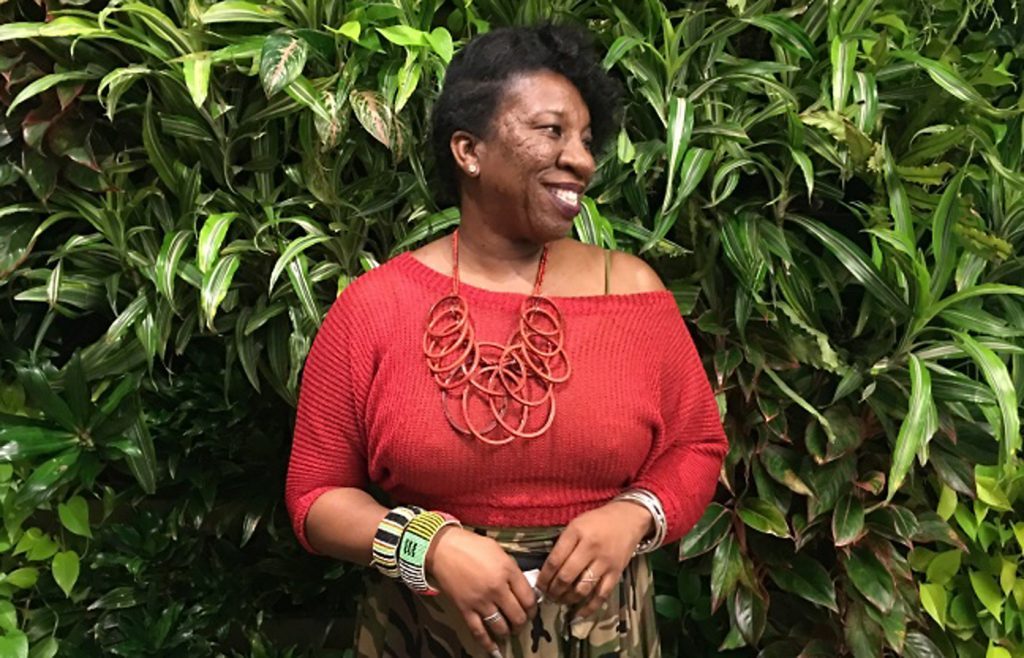Tarana Burke, the civil rights activist who coined the sensational phrase-turned-social-movement #MeToo, will speak at the fourth annual Women’s Empowerment Address and Awards. The keynote speech will take place 6 p.m. Tuesday in Fulton Chapel.
Jaime Harker, director of the Sarah Isom Center for Women and Gender Studies, helped coordinate the event as part of the Women’s History Month events on campus.
“It’s always a good opportunity for students to hear from a national figure, especially because we aren’t in a big city and don’t always have access to these folks,” Harker said.
Burke first uttered the words “me too” in 2006 while working at Just Be, an organization she developed that same year to benefit young women of color. Just Be Inc. aims to “guide young women of color in their process of self-discovery so that they may find the tools necessary to be empowered past their ‘risk’ and around their circumstances in order to set or reset the trajectory of their lives.”

Tarana Burke
Burke heard stories of harassment and assault while listening and talking with the girls at her organization. As a sexual assault survivor, Burke identified with them, and the term “me too” became a way for survivors to speak about their shared experiences.
“#MeToo became a social media trend in the last year or so,” Harker said. “A lot of people don’t know its origin, so I think it’s fitting that we go back and speak to the person who coined the phrase to get some contextual and historical perspective on a contemporary event.”
Last October, “me too” turned into a hashtag that swept social media platforms in support of women sharing their stories of sexual assault. The movement exposed the pervasiveness of sexual assault and empowered survivors to tell their stories.
“People have been talking about sexual assault and sexual harassment for a long time, but it hasn’t always been part of the mainstream conservation,” Harker said. “Social media gives individual people a chance to guide national conversations, and it clearly resonated with a number of women.”
The social media breakout of #MeToo has given sexual assault survivors of all ages a platform to share their stories. This platform is especially resonant for young, college-aged women. According to RAINN, 23.1 percent of female undergraduate students have been victims of sexual violence.
On-campus student organization Rebels Against Sexual Assault worked to sponsor the keynote speaker.
“It’s significant in a college town because, more often than not, students are afraid or nervous to speak out about their experiences, so the #MeToo movement gives them the opportunity to speak out and empower them to talk about what they have experienced and to help break that taboo of talking about sexual assault/harassment related topics on campus,” RASA President Sam Cox said. “We need to educate students and help make these conversations more common.”
Harker said the conversation about sexual harassment and assault is vital on a college campus.
“Sexual harassment and assault often gets overlooked or trivialized as typical wild college behavior, so talking about consent is always relevant,” Harker said. “I hope students and community members will learn about how to recognize the extent of the problem and commit to being active bystanders to prevent sexual assault.”
On campus, Rebels Against Sexual Assault implements sexual assault and harassment prevention, intervention and support and is sponsoring Burke’s speech with hopes that it will raise awareness among students.
“Education is a big thing, and because not many people know the story of the #MeToo movement or even how we got to where we are in our country today, this is an experience to see such a prolific human speak and teach us all about what we need to do to help empower women and empower survivors of sexual assault,” Cox said.
Burke coming to speak in Oxford, especially on the crest of a movement as powerful as #MeToo, opens the door for discussions that could potentially incite change.
“It means a step in the right direction,” Cox said. “It’s not going to change things overnight, but if students and faculty can see just how important of an issue sexual assault and sexual harassment is in a college town, then we can start to get the conversations rolling on what steps we need to take next and how we can make survivors feel more in control of their lives.”






